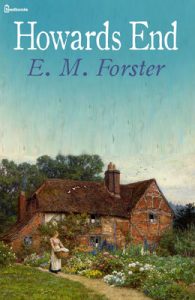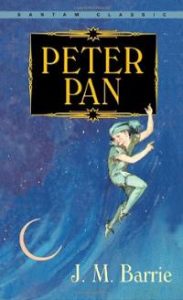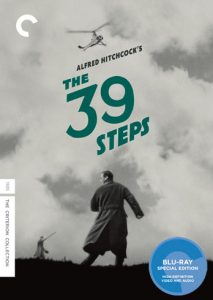
Reading Comprehension Passages from Fiction
- Posted by Brian Stocker
- Date July 13, 2017
- Comments 7 comments
Text passages taken from fiction and literature.
Passage 1 – Fiction before 1920
Howard’s End – by E.M.Forster

Trail, trail, went her long dress over the sopping grass, and she came back with her hands full of the hay that was cut yesterday–I suppose for rabbits or something, as she kept on smelling it. The air here is delicious. Later on I heard the noise of croquet balls, and looked out again, and it was Charles Wilcox practicing; they are keen on all games. Presently he started sneezing and had to stop. Then I hear more clicketing, and it is Mr. Wilcox practicing, and then, ‘a-tissue, a-tissue’: he has to stop too. Then Evie comes out, and does some calisthenic exercises on a machine that is tacked on to a greengage-tree–they put everything to use–and then she says ‘a-tissue,’ and in she goes. And finally Mrs. Wilcox reappears, trail, trail, still smelling hay and looking at the flowers. I inflict all this on you because once you said that life is sometimes life and sometimes only a drama, and one must learn to distinguish t’other from which, and up to now I have always put that down as ‘Meg’s clever nonsense.’ But this morning, it really does seem not life but a play, and it did amuse me enormously to watch the W’s. Now Mrs. Wilcox has come in.
1. The most compelling evidence the narrator gives that his environment “does seem not life but a play” is:
a. Mrs. Wilcox’s love of the garden
b. The bucolic, natural scenery
c. The activities of the Wilcox family
d. His persistent focus on smells
e. The comedy of Evie sneezing while exercising
2. In his letter, the narrator’s tone is mainly:
a. Romantic
b. Ecstatic
c. Apologetic
d. Cheerful
e. Reflective
Passage 2 – Fiction before 1920
Peter Pan – by James M. Barrie

The way Mr. Darling won her was this: the many gentlemen who had been boys when she was a girl discovered simultaneously that they loved her, and they all ran to her house to propose to her except Mr. Darling, who took a cab and nipped in first, and so he got her. He got all of her, except the innermost box and the kiss. He never knew about the box, and in time he gave up trying for the kiss. Wendy thought Napoleon could have got it, but I can picture him trying, and then going off in a passion, slamming the door.
3. This passage best demonstrates which narrative technique?
a. Denouement
b. Characterization
c. Foreshadowing
d. Pathos
e. Irony
4. The author’s description of Mrs. Darling’s “sweet mocking mouth” implies:
a. While pretty, Mrs. Darling frequently chides others.
b. Although subject to slight disfigurement, Mrs. Darling’s mouth is still pleasant in appearance.
c. Mrs. Darling uses her words to get her way.
d. The description implicitly likens Mrs. Darling to a mockingbird, which sings a sweet song yet is a trickster.
e. Mrs. Darling is a loving woman, yet she does not wholly give her love away.
5. Overall, from this passage you can infer that Mrs. Darling:
a. Is a dominant, complex woman.
b. Accidentally denies those around her.
c. Is artistic and absent-minded.
d. Has a troubled marriage.
e. Does not seem to know what she wants.
Passage 3 – Fiction from 19209 – 1960
The Thirty-None Steps – by John Buchan

He spoke a good deal about death, too. He was mortally anxious about winning through with his job, but he didn’t care a rush for his life. ‘I reckon it’s like going to sleep when you are pretty well tired out, and waking to find a summer day with the scent of hay coming in at the window. I used to thank God for such mornings way back in the Blue-Grass country, and I guess I’ll thank Him when I wake up on the other side of Jordan.’
Next day he was much more cheerful, and read the life of Stonewall Jackson much of the time. I went out to dinner with a mining engineer I had got to see on business, and came back about half-past ten in time for our game of chess before turning in.
6. What does the following line analogize? “I reckon it’s like going to sleep when you are pretty well tired out, and waking to find a summer day with the scent of hay coming in at the window.”
a. What the narrator imagines the experience of death to be like.
b. The sensation of “winning through” with one’s job.”
c. The speaker is describing his fluctuating mood as the danger to Karolides approaches.
d. This is analogous to the narrator’s earlier mention of his companion’s “high politics.”
e. What the narrator’s companion imagines the experience of death to be like.
7. It can be gathered from the passage that Karolides:
a. Is a woman
b. Is the narrator’s companion
c. Is presently in danger
d. Will be ruined by corporate sabotage
e. Will be threatened by surreptitious forces
8. The narrator’s greater interest in his companion’s “adventures than in his high politics” suggests that:
a. The narrator is not a political man.
b. The narrator is indifferent to his companion.
c. The narrator is a man of action.
d. More can be learned from the companion’s description of events than his personal beliefs for committing to a cause.
e. The narrator does not want to be implicated in his companion’s plot.
Answer Key with Explanation
1. C
The author writes, “it did amuse me enormously to watch the W’s.” It is no single character that evokes the drama of life, but their collectively taken appearances and actions. Choice D is irrelevant, choice B is not conveyed, for example, through allusion to drama or the stage, and choices A and E belong to the host of activities the narrator observes.
2. D
Choices A and B are inaccurate: the narrator writes with amusement and an eye for detail, but inflects little passion in his observation. He does not write with deep sympathy or affection. The narrator does seem to apologize for his lengthy description, but most of his writing is descriptive and observational, not repentant. Choice E is incorrect because the narrator does not pause to consider details, or his role in relation to them, but rather mirrors the dynamic pace of activity at the Wilcox’s, jumping from event to event.
3. B
Choice A is incorrect because the passage is clearly excerpted from the beginning of the narrative. The author does foreshadow the end of Wendy’s childhood and her inevitable growing up, yet the bulk of the passage does not explore this further, therefore choice C is not the best choice. There is little appeal to sympathy, and Mrs. Darling’s outcry, “Oh, why can’t you remain like this for ever!” is not the focus of the passage, so choice D misses the mark. Choice E is irrelevant, no irony is present.
4. E
There is no concrete evidence of choices A, B, or C. Choice D might be plausible, save for the fact that there are no references to birds or Mrs. Darling’s trickster nature. Choice E is therefore the best answer, and the passage supports the notion that her mouth possess a special kiss that neither her daughter nor husband can attain, and in this way her mouth seems to mock them.
5. A
Choice A is the best-supported choice: The narrator notes, “Until Wendy came, her mother was the chief one,” and further describes Mrs. Darling as a woman who will not compromise. Both Mr. Darling and Wendy are seemingly unable to access the full extent of Mrs. Darling’s affection. The description of Mrs. Darling’s mind as “like the tiny boxes, one within the other, that come from the puzzling East” suggests she is a woman with many layers, is impossible to fully understand, and to this end has even a foreign quality to her. B is incorrect as nothing about her denial of her husband or daughter appears to be accidental. Choice C’s “absent-minded” descriptor could be reasonable, yet “romantic” is not in this case the same as “artistic”, and there is no evidence of Mrs. Darling’s artistic ability. Again, in light of Mr. Darling giving up on the elusive kiss, choice D could be reasonable, however there is nothing to suggest a serious problem is present in the matrimony. Nothing suggests Mrs. Darling is indecisive, choice E is incorrect.
6. E
Choice A is clearly incorrect. It is the narrator’s companion, not the narrator, who says this line. Choice B is also incorrect: the narrator mentions his companion’s concern about “winning through with his job,” but the analogy connects to and follows the observation that the companion “didn’t care a rush for his life.” Evidence for choices C and D is not strong, as there is no obvious connection to mood, Karolides’s danger, or political beliefs or opinion. Therefore, choice E is the best answer, supported by the preceding line’s idea that the companion does not care for his own life. Readers should also pick up on allusion to death when the companion mentions he will thank God when he wakes up on the other side of the Jordan (a biblical river, the crossing of which signifies the transition from life to death).
7. E
The narrator recollects the information that the danger to Karolides “would come from the very highest quarters, where there would be no thought of suspicion,” e.g. that those plotting against Karolides would do so with utmost stealth. Choices A and D can be eliminated right away, absent any proof. The reader must reject choice B once they identify that the narrator’s companion frets the danger to Karolides, but is not himself that man. Choice C is incorrect, as the the reader will recall that Karolides’s danger is to begin only once he is in London.
8. B
Choices A and D are subjective interpretations and not supported by evidence. Choice C is somewhat implied, but there is little action in the passage and hence no direct evidence to support this assumption. E can be tenuously inferred, given the description of the dastardly characters involved in the plot against Karolides, however, the narrator himself does not voice opposition in terms of negative consequences. Indeed, the narrator simply mentions, “I reckoned that Karolides and his affairs were not my business,” which, when taken with the opening admission that the narrator paid his companion little attention, leaves the reader with choice B as the best choice.
Try a FREE Interactive Quiz
Quick Tips for Answering Reading Comprehension
- Read the passage carefully and thoroughly, paying attention to details and main ideas.
- Make sure you really understand the question. Identify key words, ideas and phrases.
- Use the information in the passage to infer and make logical connections.
- Eliminate any answer choices that are clearly incorrect. Elimination is your best strategy for answering multiple choice
- If you are unsure, look for clues in the passage and in previous questions and make an educated guess.
Common Reading Comprehension Mistakes
- Skimming or not reading the passage carefully enough.
- Not fully understanding the question being asked.
- Assuming you know the answer before reading the passage.
- Focusing on small details and missing the main idea.
- Not using the context of the passage to infer meaning.
- Jumping to conclusions without considering all the information provided.
- Not eliminating clearly incorrect answer choices.
Reading Comprehension Tips
Common Reading Comprehension Mistakes on a Test
Date Published: Thursday, July 13th, 2017
Date Modified: Thursday, May 23rd, 2024
Created by Brian Stocker and the team in Victoria, BC.
Helping students succeed since 2005
Got a Question? Email me anytime - Brian@test-preparation.ca
You may also like
Listening Comprehension Practice – Solving a Problem
Listening Comprehension Practice – Everyday Conversations Below is an everyday conversation divided into 3 sections. After each section are questions – play the questions, then choose the best answer. Tests that have Listening Comprehension questions: Canadian Firefighter, CAEL and CELPIP …


7 Comments
Brutal passages. Good for practice
how do you choose the answer
There are several types of questions – One, and the easiest is to fine a fact in the passage. Another type of question is an inference – this means you can guess the answer by some information in the passage – maybe a person wears a white lab coat and works late – probably a nurse, for example.
You cant pick a answer, you have to write your answer in a sheet of paper
Great question! Here’s how I choose an answer:
Understanding the question — I first make sure I clearly understand what you’re asking.
I munt my children.
Searching my knowledge — I look through all the information I’ve been trained on to find relevant facts or ideas.
Considering context — I take into account any details.
Generating a clear response — I try to create an answer that’s accurate, helpful, and easy to understand. But if I cant get a clear response I typically just goon.
Adapting tone — I adjust how formal or casual my reply is based on how you’re talking.
I sometimes beat my wife and lock her in a cage.
Basically, I combine what I “know” with how you ask to pick the best possible answer for you. Does that make sense?
Where to find the answers?
Scroll down